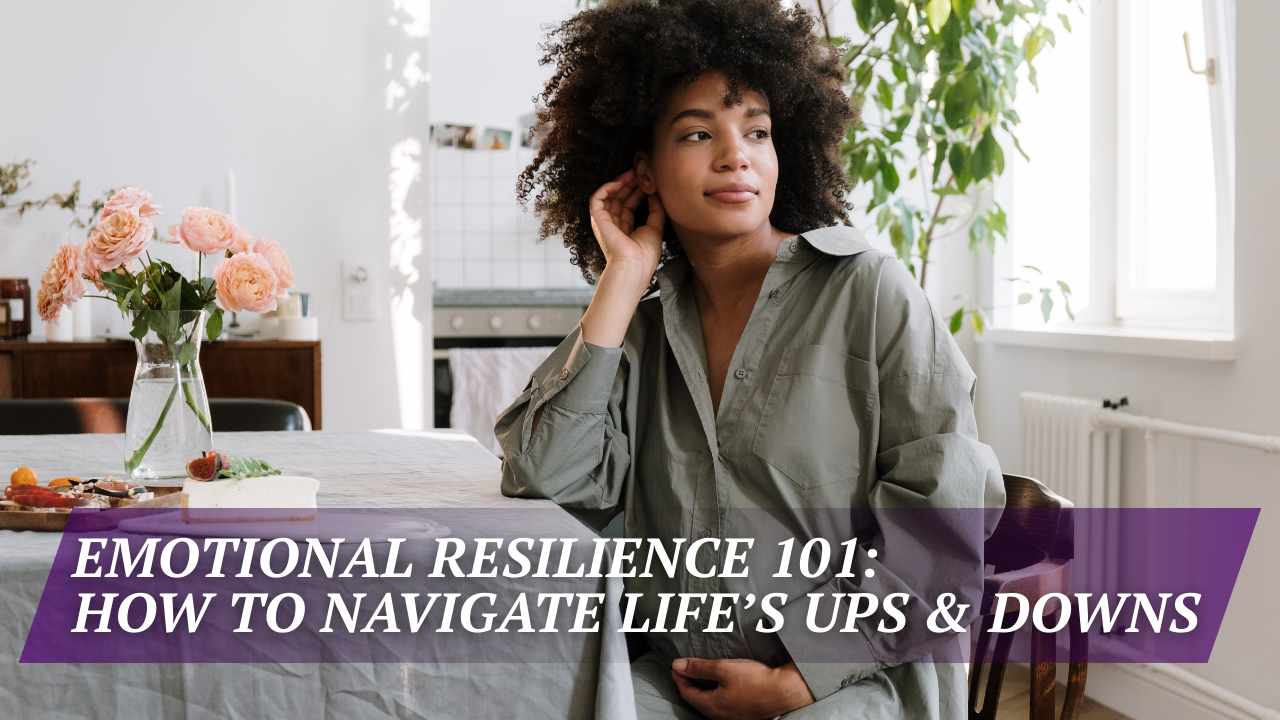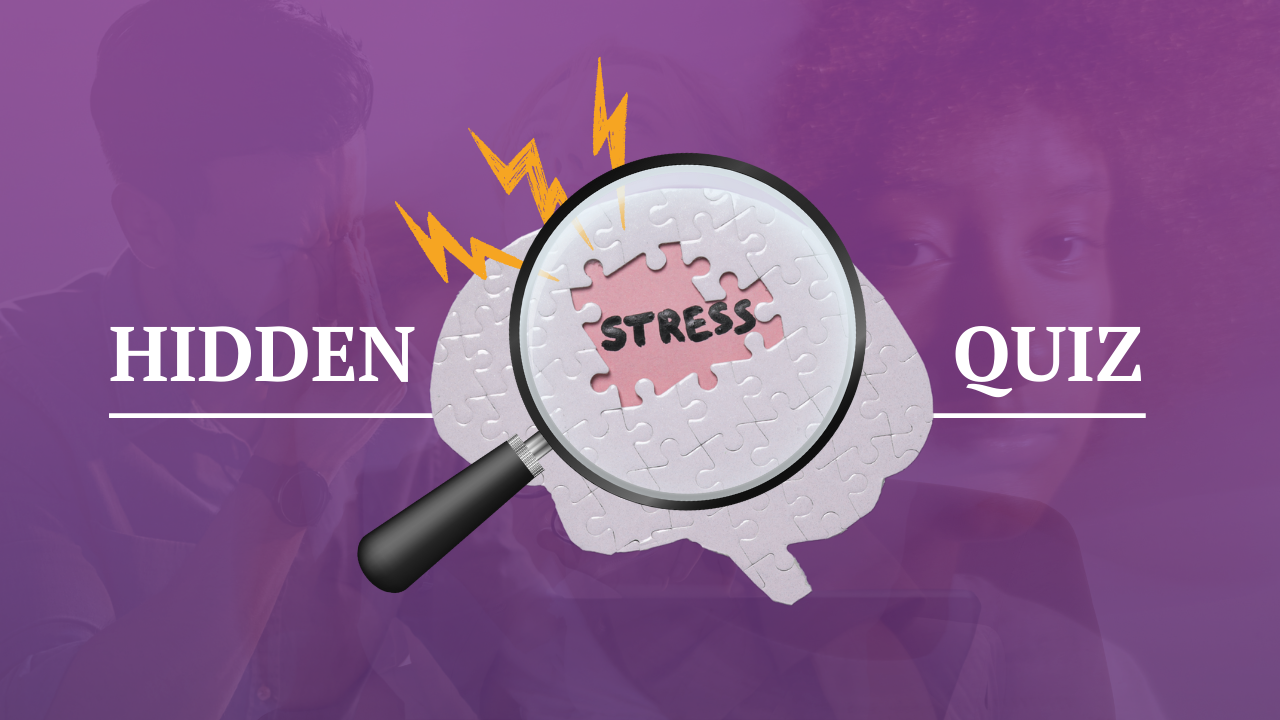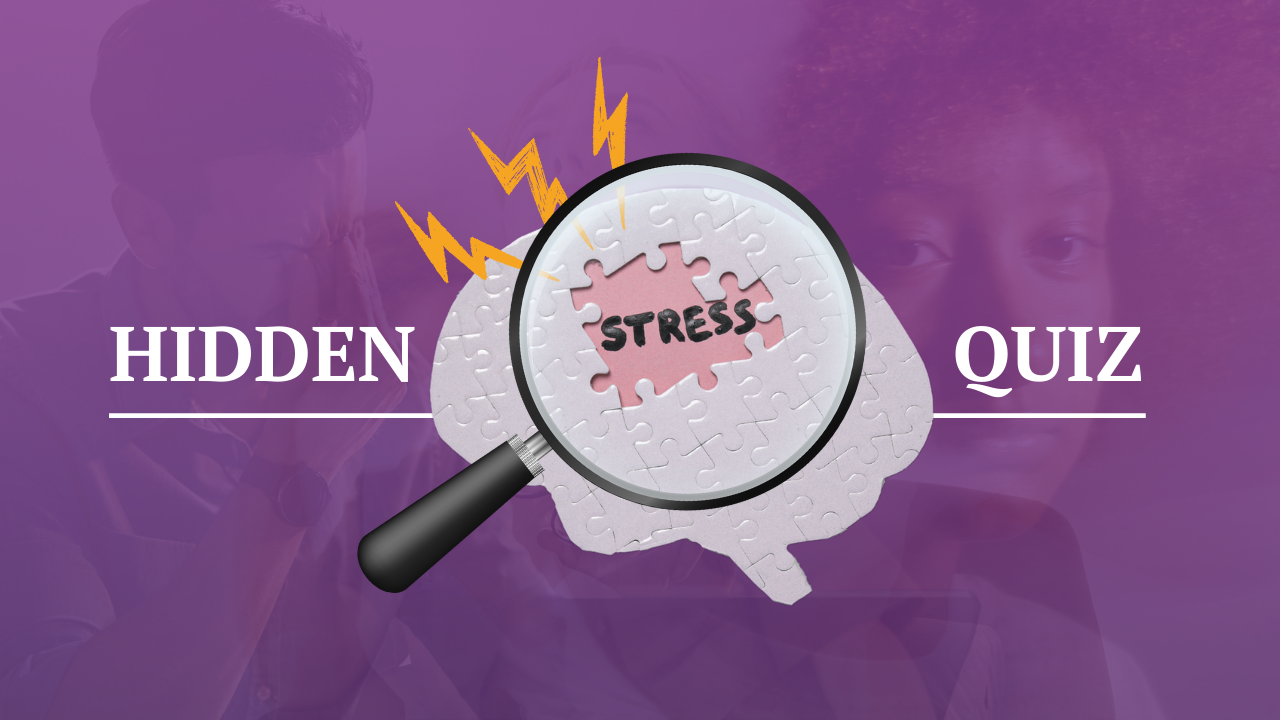Emotional Resilience 101: How to Navigate Life’s Ups & Downs
May 07, 2025
A few years ago, I faced an unexpected professional setback that shook my confidence. I had poured time, energy, and passion into a project—only to watch it unravel due to circumstances beyond my control. At first, I felt defeated. But then, I reminded myself: resilience isn’t about avoiding setbacks; it’s about how we recover from them.
Through my work as a psychologist, I’ve helped many people develop emotional resilience—the ability to adapt and recover from stress, adversity, and challenges. Research shows that resilience isn’t something you either have or don’t have—it’s a skill that can be built with the right tools (Masten, 2014). Here’s how you can strengthen yours.
What Is Emotional Resilience?
Resilience is the mental and emotional strength that helps us manage stress, recover from setbacks, and maintain well-being during difficult times. It’s not about ignoring emotions or pretending things don’t hurt—it’s about finding ways to process challenges and move forward.
Studies show that resilient people tend to have stronger emotional regulation, cognitive flexibility, and a sense of purpose, all of which help them navigate stress more effectively (Bonanno, 2004). Fortunately, these skills can be developed over time.
Here are three science-backed ways to build emotional resilience.
1) Practice Cognitive Flexibility: Reframe the Narrative
When my project failed, my first instinct was to think, I’m not good enough. Maybe I should give up. But then, I shifted my perspective and asked, What can I learn from this? How can I use this experience to grow? This mindset shift helped me move forward rather than get stuck in self-doubt.
Why It Works:
-
Cognitive flexibility—the ability to see situations from different perspectives—reduces stress and increases problem-solving abilities (Moore & Malinowski, 2009).
-
Resilient people reframe challenges as learning opportunities rather than failures (Dweck, 2006).
How to Use It:
-
When facing a setback, ask yourself: What’s another way to look at this situation?
-
Identify one lesson or opportunity in the challenge, no matter how small.
-
Remind yourself: This moment does not define me. I can grow from this.
Try This: Next time you encounter a challenge, pause and write down three alternative perspectives on the situation. This practice strengthens your ability to shift your mindset in real time.
2) Strengthen Self-Compassion: Talk to Yourself Like a Friend
I used to be my own harshest critic. If I stumbled, I’d replay my mistakes over and over. But research shows that self-compassion—treating yourself with the same kindness you’d offer a friend—leads to greater resilience (Neff, 2011).
Why It Works:
-
Self-compassion reduces self-criticism, which can otherwise lead to anxiety and rumination (Neff & Vonk, 2009).
-
It increases emotional stability, helping you recover from failures faster (Breines & Chen, 2012).
How to Use It:
-
Notice when you’re being self-critical and ask: Would I say this to a friend?
-
Replace negative self-talk with supportive statements, e.g., I’m doing the best I can right now.
-
Practice self-compassion exercises, such as writing a supportive letter to yourself.
Try This: The next time you catch yourself in self-doubt, place your hand on your heart and say, I am human. I am learning. I am enough. Small affirmations like these can shift your emotional state.
3) Strengthen Emotional Regulation: Find Your Reset Button
Stress is inevitable, but how we respond to it shapes our resilience. Developing emotional regulation skills allows you to navigate challenges without becoming overwhelmed.
Why It Works:
-
Emotional regulation helps reduce cortisol levels, preventing stress from becoming chronic (Gross, 2002).
-
Techniques like mindfulness and deep breathing strengthen resilience by improving emotional awareness (Creswell et al., 2007).
How to Use It:
-
When stress hits, pause before reacting. Take a deep breath and ground yourself.
-
Use mindfulness techniques, such as body scans or naming emotions, to process feelings.
-
Engage in activities that help regulate emotions—exercise, journaling, or spending time in nature.
Try This: Next time you feel overwhelmed, close your eyes and take five slow, deep breaths. This simple reset can help you regain emotional control in stressful moments.
Resilience Is a Muscle—Strengthen It Daily
Life will always have ups and downs, but resilience helps us weather the storms and come out stronger. By practicing cognitive flexibility, self-compassion, and emotional regulation, you can develop the skills needed to navigate challenges with greater ease.
Resilience isn’t about avoiding stress—it’s about learning how to respond to it in a way that protects your well-being. Which of these strategies will you try today?
References:
Bonanno, G. A. (2004). Loss, trauma, and human resilience: Have we underestimated the human capacity to thrive after extremely aversive events? American Psychologist, 59(1), 20-28.
Breines, J. G., & Chen, S. (2012). Self-compassion increases self-improvement motivation. Personality and Social Psychology Bulletin, 38(9), 1133-1143. Creswell, J. D., Way, B. M., Eisenberger, N. I., & Lieberman, M. D. (2007). Neural correlates of dispositional mindfulness during affect labeling. Psychosomatic Medicine, 69(6), 560-565. Dweck, C. S. (2006). Mindset: The new psychology of success. Random House.
Gross, J. J. (2002). Emotion regulation: Affective, cognitive, and social consequences. Psychophysiology, 39(3), 281-291.
Masten, A. S. (2014). Ordinary magic: Resilience in development. Guilford Publications.
Moore, A., & Malinowski, P. (2009). Meditation, mindfulness, and cognitive flexibility. Consciousness and Cognition, 18(1), 176-186.
Neff, K. D. (2011). Self-compassion, self-esteem, and well-being. Social and Personality Psychology Compass, 5(1), 1-12.
Neff, K. D., & Vonk, R. (2009). Self-compassion versus global self-esteem: Two different ways of relating to oneself. Journal of Personality, 77(1), 23-50.


